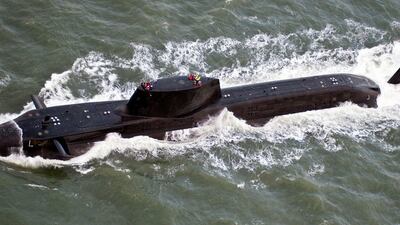The UK is storing twice as many decommissioned submarines than it has in active service at a cost of roughly £500 million since 1980, an investigation has found.
Of these 20 submarines, nine are installed with nuclear energy units and the Ministry of Defence has not defueled any vessels since 2004. The department “does not have a fully funded plan to re-start the work,” the National Audit Office said. Officials said the government now hopes to begin the process in 2023.
The news was described as “dismal” by the Public Accounts Committee.
The future liability to maintain and dispose of its 20 stored and 10 in-service submarines is around £7.5 billion, as at March 2018.
“It will cost an estimated £96 million to fully dispose of a submarine excluding costs associated with establishing the required facilities, infrastructure and disposing of nuclear waste at the end of its storage period,” the NAO said.
There are also no fully-developed plans to get rid of the Vanguard and Astute submarines, which are currently in service or the Dreadnought-class that is set to join the Royal Navy in the future.
“For more than 20 years the Ministry of Defence has been promising to dismantle its out-of-service nuclear submarines and told my Committee last year that it would now address this dismal lack of progress,” said MP Meg Hillier, chair of the Public Accounts Committee.
“It has still not disposed of any of the 20 submarines decommissioned since 1980 and does not yet know fully how to do it. The disposal programmes have been beset by lengthy delays and spiralling costs, with taxpayers footing the bill.
"The Ministry needs to get a grip urgently before we run out of space to store and maintain submarines and we damage our reputation as a responsible nuclear power,” she said.
Disposing of nuclear submarines was described as “a complex and challenging undertaking,” by the defence ministry. It remained committed to a "cost-effective defueling" as soon as "practically possible.

